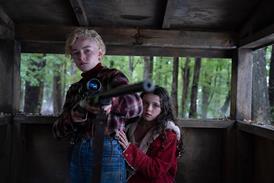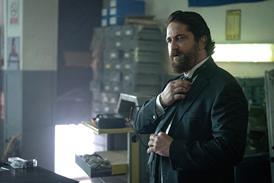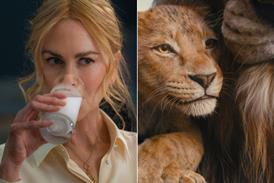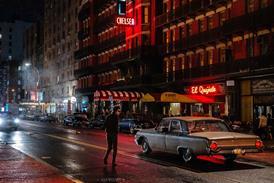Dir: John Woo. US. 2003. 119 mins.
Representing a comeback opportunity for both director John Woo and star Ben Affleck, Paycheck is a sci-fi action thriller that offers glimpses of Woo at his elegant best before it disintegrates into hackneyed genre silliness. Paramount's Christmas Day US release will be watched closely as a gauge of Affleck's pulling power after the disaster of Gigli and months of less than favourable tabloid exposure. A mid-level domestic take seems to be the most likely outcome. The film may do better after the holiday in the international marketplace, where DreamWorks distributes through UIP: Woo's films have sometimes performed best outside the US and Affleck's notoriety may be less of a factor in overseas territories.
An early story by Philip K Dick - whose work also, of course, inspired Blade Runner, Total Recall and Minority Report - is the basis for the screenplay by Dean Georgaris (Lara Croft Tomb Raider: The Cradle Of Life). Affleck's Michael Jennings is a world-famous engineer hired by corporations to 'reverse engineer' new gadgets so his employers can steal the technology. After each job his memory is erased so he can't divulge company secrets.
Hired to do an especially sensitive and lucrative job for a billionaire entrepreneur (Eckhart, from In The Company Of Men), Michael wakes up to find himself short of his eight-figure fee and on the run from his erstwhile employer and the FBI. His only clues to what happened are 20 seemingly innocuous objects he mailed to himself before his memory was wiped.
The premise takes a solid grip on audience attention and keeps hold for most of the film's first hour. Woo does a nice job of teasing out the intrigue as Michael, with help from former lover Rachel (Thurman), pieces together his story. In its second half, however, the film relies too heavily on its corny central plot device - a machine that sees into the future - and the tautness slips.
With help from director of photography Jeffrey Kimball (who also worked on the director's Windtalkers and Mission: Impossible 2), Woo gives the film his customarily heightened, almost operatic sense of drama and inserts some of his trademark touches, like a white dove and a couple of gun-to-gun standoffs. But the mood is often undermined by overly mannered acting and gee-whiz dialogue ("Oh my God, that's the future.").
The film's design scheme mixes crisp 1960s retro costumes - the action is apparently set in the very near future - with sleek corporate architecture. Some plastic looking and none too imaginative sets and props give the film a disappointing B-movie feel.
The action is fairly subdued by Woo's usual standards. A motorbike-car chase through crowded city streets offers some thrilling moments - and some very dangerous looking camera moves - but it winds up feeling a touch over-choreographed. The big finale features a string of explosions but goes by in something of a blur.
Affleck makes for a reasonably dashing action hero, but he is perhaps a bit too likeable to play a man who, initially at least, seems interested only in money. Whether by choice or direction, Thurman gives an odd and not very appealing performance.
Prod cos: Davis Entertainment Company, Lion Rock, Solomon/Hackett Productions
US dist: Paramount Pictures
Int'l dist: DreamWorks Pictures
Prods: John Davis, Michael Hackett, John Woo, Terence Chang
Exec prods: Stratton Leopold, David Solomon
Scr: Dean Georgaris, based upon the short story by Philip K Dick
Cinematography: Jeffrey L Kimball
Prod des: William Sandell
Eds: Kevin Stitt, Christopher Rouse
Visual effects supervisor: Gregory L McMurry
Costume des: Erica Edell Phillips
Music: John Powell
Main cast: Ben Affleck, Aaron Eckhart, Uma Thurman, Paul Giamatti, Colm Feore, Joe Morton, Michael C Hall



















No comments yet